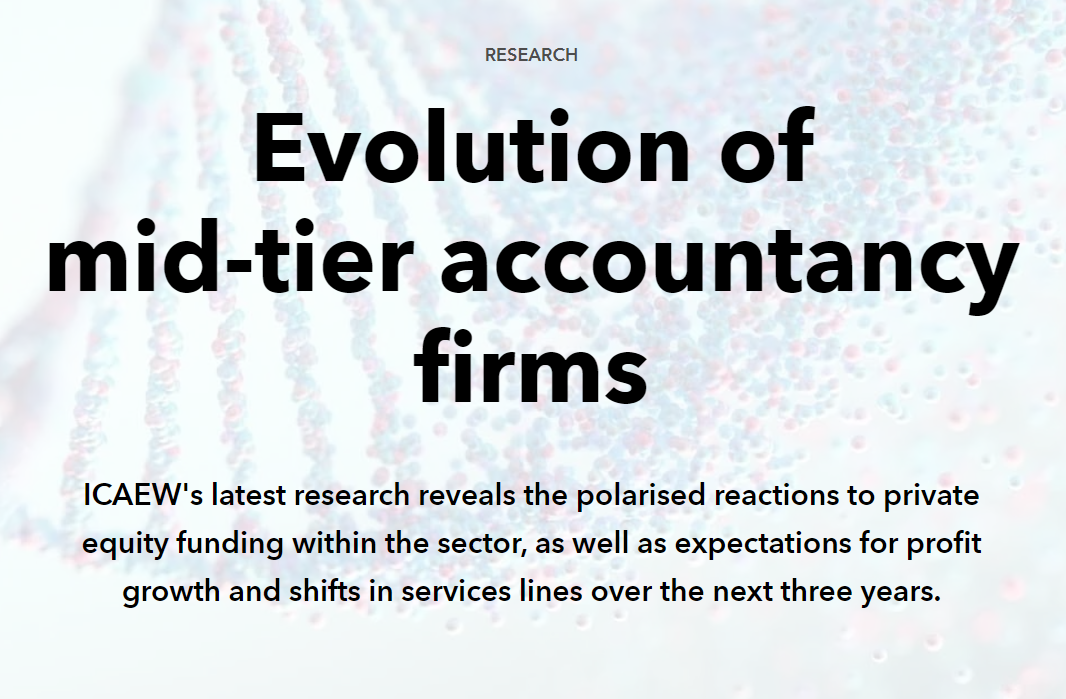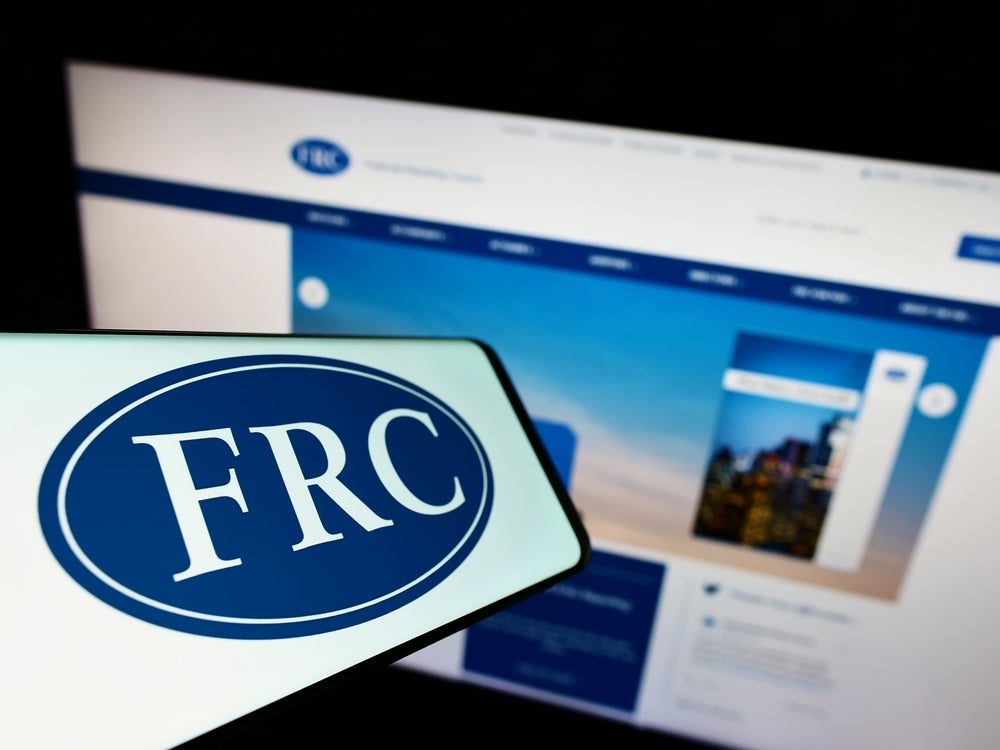
Chartered accountancy body ICAEW has published a report exploring the evolution of mid-tier accountancy firms following a survey of managing partners.
The findings draw together the views of managing partners at 42 mid-tier firms to examine the impact of five themes – firm structure and operational model; leadership and culture; talent; technology; financial performance and service lines – on the evolution of the profession.
The report was launched at an event at Chartered Accountants’ Hall yesterday evening (Wednesday).
Of those firms who were surveyed, seven in 10 were structured as limited liability partnerships, and 90% were part of an alliance, association or network. Global reach (84%) and client referrals (71%) were the main benefits of an affiliation, the firms said.
Some 64% of firms said they had acquired another firm in the past, while 17% had been part of a merger. Half of firms (55%) are likely to make acquisitions in the next three years, while 21% said their firm would like to merge with another in the same timeframe.
When asked about private equity, 57% of respondents ranked it as a top three macro trend impacting the profession. Additionally, 12% of firms said they had secured private equity investment, while another 12% said they would like to secure PE investment in the next three years. However, 64% said PE was “not [or] not at all attractive” to their firm, while 17% said they saw remaining independent as an opportunity.
How well do you really know your competitors?
Access the most comprehensive Company Profiles on the market, powered by GlobalData. Save hours of research. Gain competitive edge.

Thank you!
Your download email will arrive shortly
Not ready to buy yet? Download a free sample
We are confident about the unique quality of our Company Profiles. However, we want you to make the most beneficial decision for your business, so we offer a free sample that you can download by submitting the below form
By GlobalDataOther findings included:
- 52% of respondents cited talent shortages when asked about the macro trends driving change in the profession, with recruitment and retention and future-proofing among concerns;
- Investment in technology infrastructure and cloud-based products is set to decline in the next three years, and in its place is a shift towards AI and in-house solutions;
- Of the top three skills required for the next generation of practice leaders, respondents highlighted commercial acumen (52%), adaptability (38%), inclusive leadership (36%), emotional intelligence (33%);
- 93% of firms saw growth in fees in their last financial year, with the main drivers of growth including new clients (95%), increasing charge out rates (82%) and existing clients spending more (64%);
- Though firms said their biggest growth would be in the existing core services of tax and audit, a number of emergent service lines are also set to grow, including business advisory, corporate finance, ESG and tech app advisory.
Commenting on this, ICAEW chief executive, Alan Vallance, said: “These findings paint an important picture of mid-tier practices as firms evolve to face the challenges of the future.
“Mid-tier firms play a vital role in supporting and advising SMEs across the country, which is why we wanted to understand the opportunities and challenges they currently face.
“We’re grateful to all those managing partners who gave their time to share their views. Their comments will provide valuable insight for ICAEW as to how we shape our support for firms and members facing such challenges, now and in the future.
“We hope that the findings will help these firms as they innovate and take strategic decisions to navigate the current economic climate, support their clients and contribute to the continued success of the profession.”






